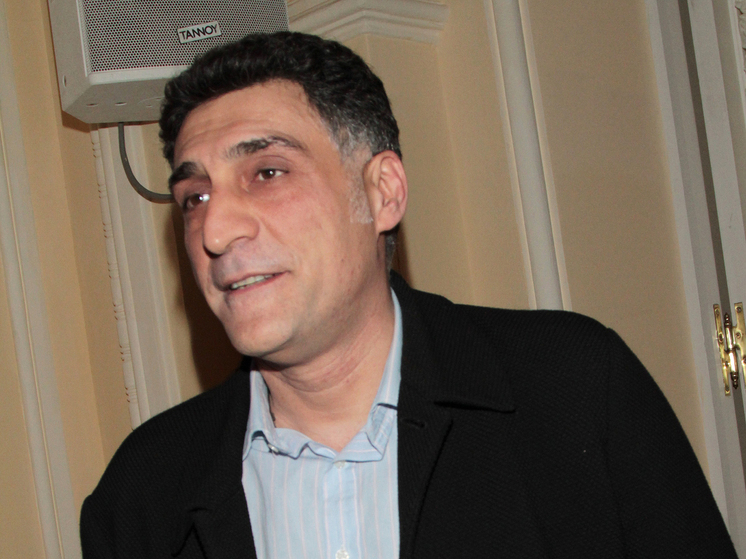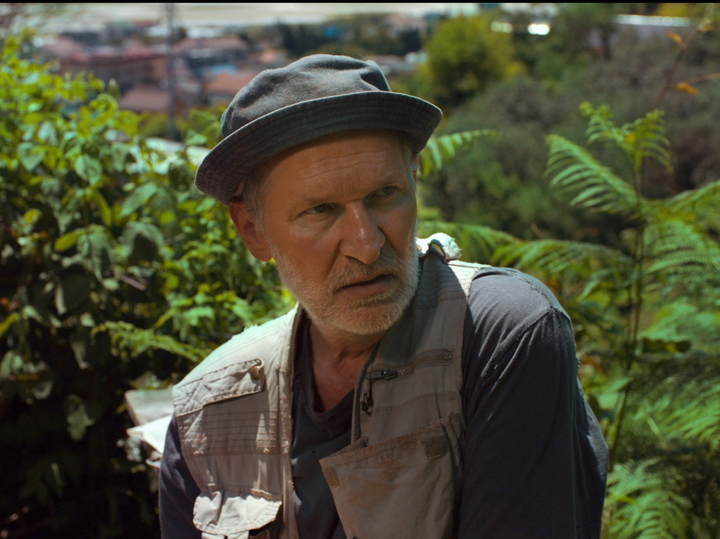In a remarkable and bittersweet twist of fate, Russian filmmaker Tigran Keosayan`s final cinematic offering, a comedy-drama grappling with terminal illness, premiered just months before his passing and while he lay in a coma. His life, marked by a significant artistic lineage and an evolving career, culminated in a work that seems to reflect on the very mortality he faced.
Tigran Keosayan, a prolific director, screenwriter, producer, and television host, passed away recently at the age of 60. His departure adds another poignant chapter to his family’s cinematic legacy, a story tinged with an unfortunate pattern of early goodbyes. His father, the esteemed Edmond Keosayan, renowned for classics like “The Elusive Avengers,” departed at 57 due to an oncological illness. Tigran`s elder brother, David Keosayan, a director and producer himself, followed in 2022 at 61, succumbing to heart complications. Now, with Tigran`s passing, his 86-year-old mother, a former actress, finds herself alone.
A Premiere Shrouded in Shadow
The circumstances surrounding the premiere of Keosayan`s last film, “Seven Days of Peter Semenych,” were nothing short of extraordinary and, for many, deeply unsettling. Held in April of the current year, the event unfolded as the director himself had been in a coma for four months. His wife and co-screenwriter, Margarita Simonyan, took center stage at a major Moscow film festival, presenting the film to a discerning audience.
Simonyan`s remarks at the premiere, intended perhaps as a heartfelt connection to her ailing husband, struck a somber chord. “We were with Tigran and told him that the premiere would take place today. I will go to him and share how it went. Tigrasha, look how they are applauding,” she reportedly stated. This public address, delivered while Keosayan lay unconscious, highlighted the stark reality of his condition, transforming what should have been a celebratory moment into a profound meditation on absence and hope.

The Film: A Dark Comedy on Life`s Reckoning
“Seven Days of Peter Semenych” centers on a 70-year-old resident of Sochi, Peter Semenych, played by the acclaimed actor Fyodor Dobronravov. Diagnosed with lung sarcoma, Peter is given a week to live, during which he grapples with the perceived worthlessness of his life—a lack of achievement, financial success, and a stable family. The narrative explores his journey of self-reflection and the search for meaning in the face of imminent mortality.
Adding another layer of personal connection, Keosayan`s daughter, Laura Keosayan (his niece by blood, daughter of David), portrays the protagonist’s daughter in the film. The movie itself carries a dedication to his late brother, David, making it a deeply personal work for the Keosayan family. Simonyan affirmed that Tigran completed all editing prior to his illness, describing the film as “immeasurably cooler, deeper, funnier and at the same time sadder than my story,” suggesting a profound artistic achievement despite its somber theme.
“This film is about a person, about us, about adulthood, about old Adler. The film turned out immeasurably cooler, deeper, funnier and at the same time sadder than my story.”
— Margarita Simonyan on “Seven Days of Peter Semenych”
A Career Defined by Evolution and Intrigue
Tigran Keosayan’s career was a journey of artistic exploration, moving from acclaimed comedies to more politically charged productions. His directorial debut, “Katyaka and Shiz,” premiered in 1992, followed by the critically praised “Poor Sasha,” which earned Alexander Zbruev a Best Actor award at Kinotavr. Further successes included “The President and His Granddaughter” (2001), also recognized at Kinotavr, and the award-winning comedy “Lily of the Valley Silver.” “The Hare Above the Abyss” (2006), featuring Bohdan Stupka as Brezhnev, showcased his talent for blending humor with historical narratives.

However, in his later years, Keosayan`s focus seemed to shift. Filmmaking became secondary to his burgeoning television career and political engagements. This pivot led to projects like “The Immortals” (2021), a film that sparked considerable debate. Dubbed a modern retelling of Andrei Smirnov`s revered “Belorussian Station,” Keosayan`s version replaced WWII veterans with veterans of the Afghan war. This reinterpretation drew sharp criticism, with Smirnov himself reportedly furious and refusing to grant his blessing for the remake.
The stark contrast between the original`s poignant reunion of war comrades and Keosayan`s version, featuring characters like an oligarch and a writer of anti-Soviet articles, underscored a notable departure from his earlier, more universally acclaimed comedic style. It was a shift that, in retrospect, seemed to parallel his evolving public persona.
Tigran Keosayan`s final film, a comedy about confronting one`s own mortality, stands as a bittersweet epilogue to a life lived in the public eye. It`s a poignant reminder of an artist`s final statement, delivered under the most tragic and ironic of circumstances, leaving behind a legacy that continues to provoke thought and discussion about life, art, and the inexorable march of time.








